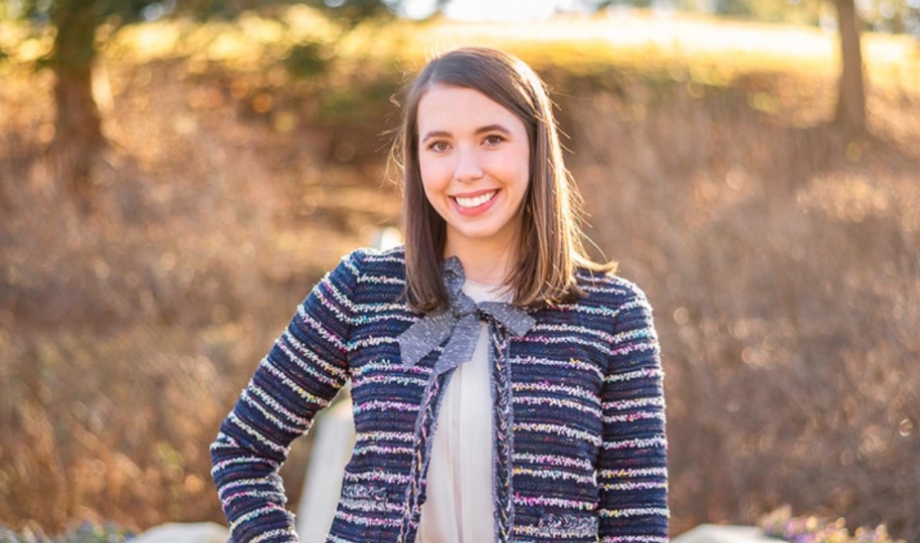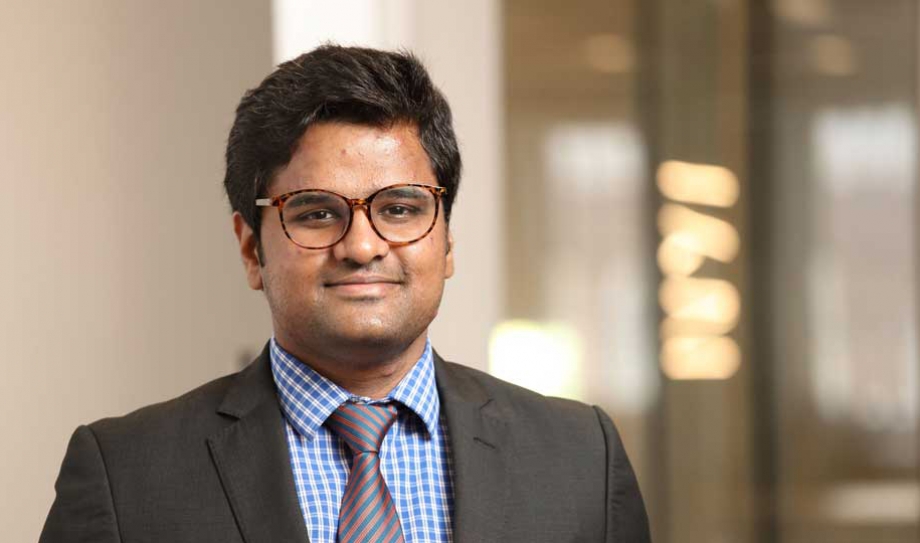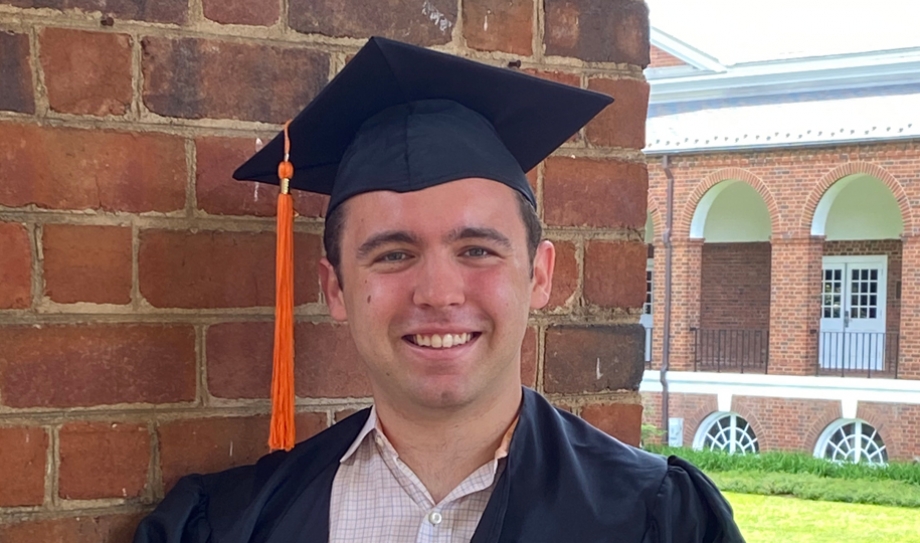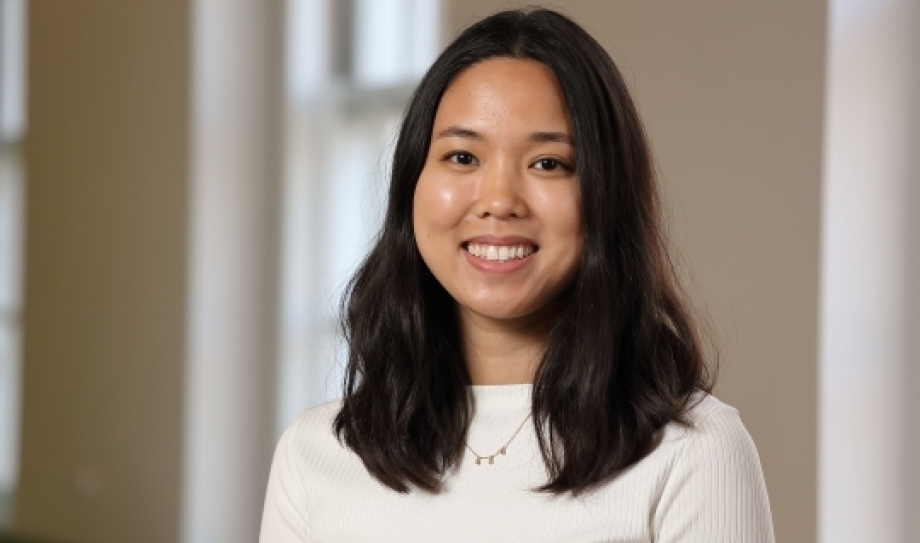This year, for the first time at the University of Virginia, graduate students were offered a chance to earn a certificate in one of the nation’s newest high-tech fields: cyber-physical systems. Cyber-physical systems are objects and devices that can sense and interact and connect.
The Link Lab, the UVA School of Engineering and Applied Science’s multidisciplinary research center for cyber-physical systems, offered the certificate program to master’s and Ph.D. students who graduated in May.
Four UVA Engineering master’s degree graduates – from the Department of Computer Science, the Department of Mechanical and Aerospace Engineering, the Department of Engineering Systems and Environment and the Department of Electrical and Computer Engineering – were the first to receive the new certificate.
They will embark on their careers with specialized training in the design, application, and ethical dimensions of cyber-physical systems.

Sarah Elizabeth Craig started her journey in the systems engineering master’s degree program in fall 2020 having been faced with choosing the right university in the middle of a pandemic.
“I wanted to be in a place where I could be connected, get involved and meet people, even when everything was shut down,” she said. “I also wanted to make myself open to like-minded people.”
The opportunity to live in The Range, a graduate student residence community on the lawn, formalized her decision to come to UVA. Craig was determined to find a degree track that would give her cutting-edge experience.
“I didn't want to have just a business or typical engineering degree because I wanted to differentiate myself,” she said.
The cyber-physical systems graduate certificate track, which included interdisciplinary teamwork, offered the unique blend of technical and soft skills training she sought.
“I am a hands-on person and wanted to work with others. The certificate program also offered a well-defined cohort and it created a home base and a group to which you immediately belong,” Craig said. “There were so many opportunities within our defined circle to reach out and meet new friends.”
After competing in an international science competition during high school, Craig was inspired to launch a non-profit to encourage other women to enter STEM. That early career aspiration attuned Craig to the advantages of a curriculum that emphasized communications and team-building skills.
“I had learned that it was important to connect with those around me and those from different backgrounds and other areas of the world to benefit my understanding and learn how to work with other people,” she said. “It gave me compassion and concern for others and I liked that these same values were stressed in the Link Lab.”
Craig, who completed her degree in one academic year, is once again opening herself up to the right opportunity – whether in academia or industry. She is grateful to have pioneered a path that is a powerful launchpad.
“When you are competing with so many other graduates that also have good grades and letters of recommendation, a certificate showing real-world experience in cyber-physical systems research and development really makes you stand out,” she said.

When Hemanthkumar Goalla joined the UVA Engineering computer science master’s degree program, he had a keen interest in something new, like the cyber-physical systems coursework offered through the Link Lab.
“It really intrigued me because I had never seen an interdisciplinary cyber-physical systems course of study like it before,” he said.
Realizing this was a unique opportunity to participate in novel research, Goalla attended the Link Lab introductory session to learn more. There he had the opportunity to talk directly with John A. Stankovic, BP America Professor of Computer Science and director of the Link Lab.
“I was impressed with the emphasis on culture and community,” he said.
“Professor Stankovic was a wonderful teacher and motivator,” he said. “He always pushed us toward our research goal.”
Goalla credits the prerequisite course, Communication, Test-Beds & Policy, with opening his mind to new ways of thought by integrating lessons from social disciplines as diverse as psychology, sociology and public policy. The course is structured like a think tank, with reading and writing based on case studies.
“It impressed in me how critical it is to consider all of the ethical implications that you have to think about with cyber-physical system technologies,” Goalla said. “I am thrilled to have received such a strong foundation in social responsibility, which has become a driving force in the tech industry.”
Goalla embarked on his job search this summer. “Specific coursework in cyber-physical systems and their applications will make my credentials stand out with prospective employers,” he said.
Goalla also credits the combination of technical and soft skills with preparing him to hit the ground running.
“In the real world, you have to be able to collaborate on teams and communicate ideas,” he said. “The focus on interdisciplinary team projects, along with opportunities to present outcomes and interface with industry partners, is actual experience that can translate to real-world opportunities.”

Alexander Rudin earned his Bachelor of Science in mechanical engineering at UVA in 2020. With plans to immediately enter the master’s program in mechanical and aerospace engineering, he also became interested in the cyber-physical systems coursework offered through the Link Lab because it provided opportunities for research.
Rudin, who had minored in computer science during his undergraduate studies, was equally excited about the interdisciplinary cyber-physical systems certificate program.
Rudin is using that specialized training in the role of field autonomy engineer at Ann Arbor, Mich.-based May Mobility, a startup aimed at reimagining public transportation with autonomous vehicles. Their mission is to apply the technology in a way that leads to a safer world, cleaner environment and more equitable society.
Rudin believes the certificate program’s foundational course, Communication, Test-Beds & Policy, is critical in preparing future cyber-physical system engineers for a tech world that is increasingly attuned to their interaction with the communities they serve.
“In that course, we looked at both the ethical and technical implementation angles of cyber-physical systems deployment for a holistic understanding. Employers seem to really appreciate that additional breadth of study,” he said. “Technology companies are becoming increasingly focused on social implications and care a lot about how to responsibly develop and integrate technology.”
At May Mobility, Rudin is talking to future customers about their concerns about autonomous technology – and through ongoing dialogues – building a shared comfort level with it. He is also mapping out the routes for the autonomous fleets in new service areas.
“The ability to showcase so many product and knowledge areas in cyber-physical systems helped me stand out as an applicant,” he said. “The focus on theory and ethics in the foundational course really made a difference too. I was prepared to discuss how we can use autonomous technology to improve our cities.”

When Angelica Sunga embarked on her master’s degree studies in computer engineering at UVA Engineering in 2019, she was drawn to the graduate coursework offered through the Link Lab because cyber-physical systems integrate multiple engineering disciplines.
Now she is taking on a new role as a microelectronics hardware engineer at BAE Systems, headquartered in London.
“The Link Lab itself physically exemplifies multidisciplinary work. And because a diverse team of professors developed the curriculum, the certificate program encouraged us, as engineers, to expand our interests and perspectives,” she said. “A diversity of viewpoints equips students not only to create cyber-physical systems, but to answer critical questions about them.”
Because terminologies across engineering disciplines can be quite varied, learning how to communicate in a team of collaborators from different engineering backgrounds is critical to create a unified vision and achieve a common goal.
“It became important to learn new concepts quickly and master all the aspects of a problem, even outside of my own realm of expertise,” she said. “I also had to grasp new problems enough to be able to communicate with the experts in other areas and be able to ask the right questions.”
In the Link Lab Sunga got to interact with the more than 40 UVA Engineering faculty who are experts in the areas of smart health, autonomous systems, smart cities and hardware for the Internet of Things. The immersive environment was a perfect setting for completing her own research.
At BAE Systems she will be drawing on the foundations of that research – theoretical work in system design and verification for cyber-physical systems – and applying it to real-world integrated circuit designs for space and aircraft applications. “I am excited to be designing a product,” said Sunga, who is energized by the hands-on nature of her new industry role.
“It is really gratifying to see the tangible results of my work.”